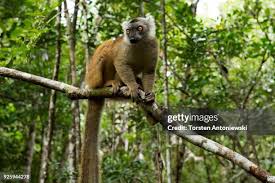Understanding Madagascar: Biodiversity and Conservation Efforts

Introduction
Madagascar, the world’s fourth-largest island, is renowned for its remarkable biodiversity and unique ecosystems. With species found nowhere else on Earth, it holds significant ecological importance. Today, it is facing major challenges due to habitat loss and climate change, making it imperative to understand and act upon these issues.
Biodiversity Hotspot
Home to over 200,000 species of plants and animals, including lemurs, chameleons, and the iconic baobab trees, Madagascar boasts remarkable levels of endemism. According to a 2022 report by the Worldwide Fund for Nature (WWF), approximately 90% of the island’s wildlife is endemic. This biodiversity is attributed to Madagascar’s isolation from other landmasses for over 88 million years, fostering a rich evolutionary path.
Current Conservation Challenges
Despite its ecological significance, Madagascar faces numerous threats. Deforestation, primarily driven by illegal logging and slash-and-burn agriculture, has devastated much of the island’s forest cover. Between 2000 and 2018, Madagascar lost about 2.5 million hectares of forest, leading to habitat destruction for many species. Climate change further exacerbates these issues by increasing the frequency and severity of storms and droughts, jeopardizing the livelihoods of local communities as well as the habitats of countless species.
Conservation Efforts
In response to these challenges, various conservation initiatives have been launched. Organizations like the Madagascar Conservation Fund and the Wildlife Conservation Society work alongside local communities to promote sustainable practices and protect endangered species. The Malagasy government has also designated numerous protected areas, including national parks such as Andasibe-Mantadia and Ranomafana, which are critical habitats for endemic wildlife.
Conclusion
Madagascar’s unique biodiversity is a treasure that must be preserved. Effective conservation strategies and international support will be essential in combating deforestation and mitigating climate change’s impacts. The island’s future relies heavily on educated policies and community engagement, ensuring a sustainable environment for its extraordinary wildlife and local populations. The world must pay close attention to Madagascar, as its fate reflects wider global ecological concerns.








